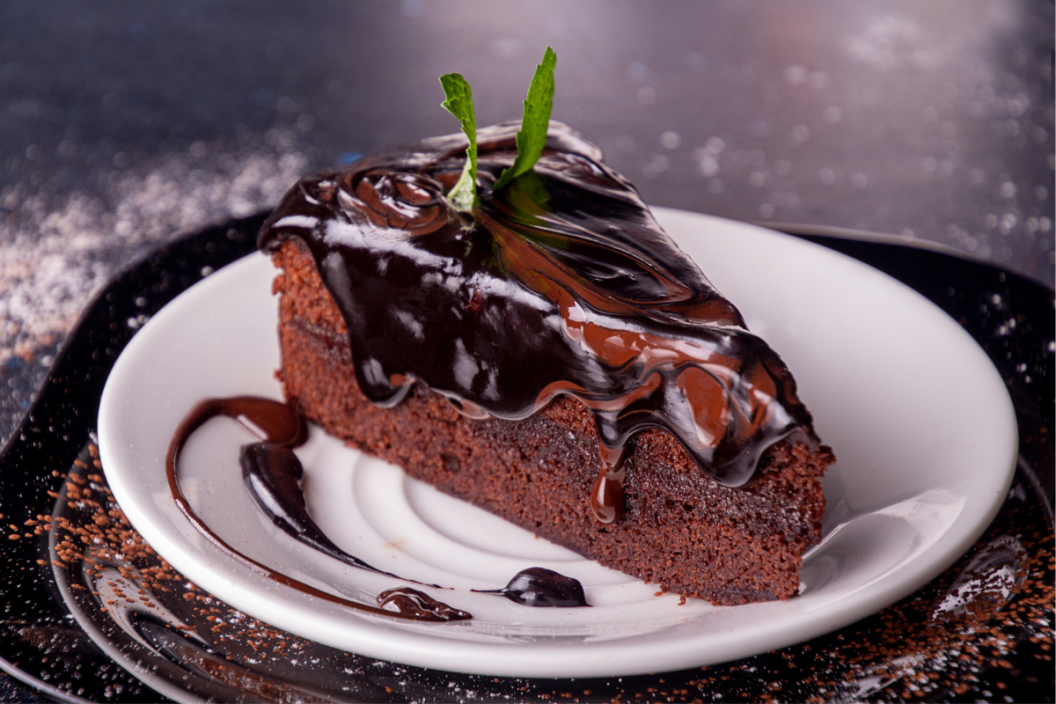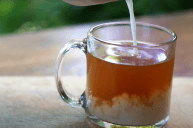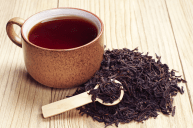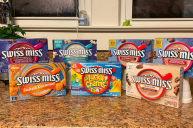Chocolate is beloved for its rich flavor and creamy texture, from classic Hershey bars to fancy Ferrero Rocher truffles. There's some evidence that it also has some health benefits, like providing antioxidants and nutrients, having anti-inflammatory properties, and aiding heart health. We know that chocolate tastes delicious and makes us happier and more energized, but does chocolate have caffeine?
Videos by Wide Open Country
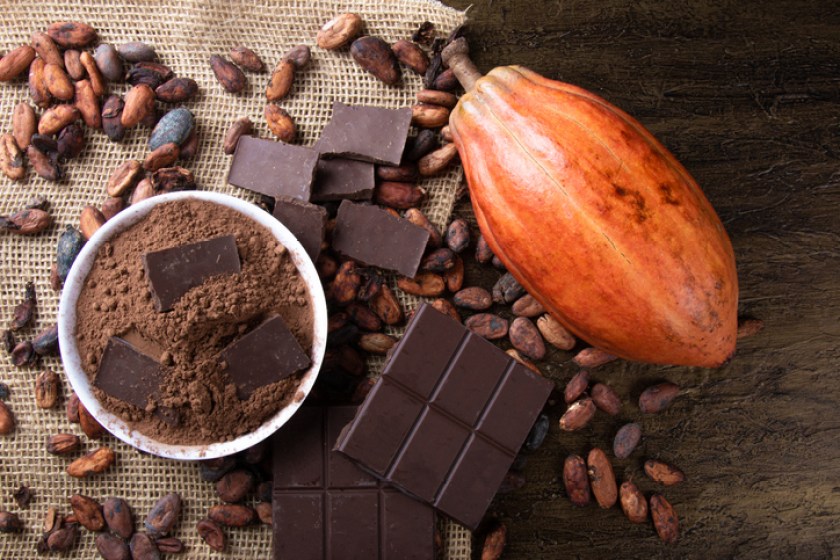
Getty Images/gustavomellossa
Chocolate is made from cocoa beans, which come from the cacao tree, or Theobroma cacao. This plant originated in the Amazon in South America at least 4,000 years ago. To make chocolate, cacao beans are liquefied, and the liquid that results contains both cocoa butter and cocoa solids. These are both used to make different types of chocolate, and depending on which one is used, the resulting chocolate may or may not have caffeine in it.
Cacao solids do indeed contain caffeine, while cocoa butter doesn't. Therefore, any chocolate with the solids in it has caffeine in it. The darker the chocolate, the more cocoa solids it contains, giving it a higher amount of caffeine. This makes a dark chocolate bar the best source of caffeine out of all kinds of chocolate. As for white chocolate, this only contains cocoa butter and has no solids, so it's completely caffeine-free.
Mow Much Caffeine is in a Chocolate Bar?
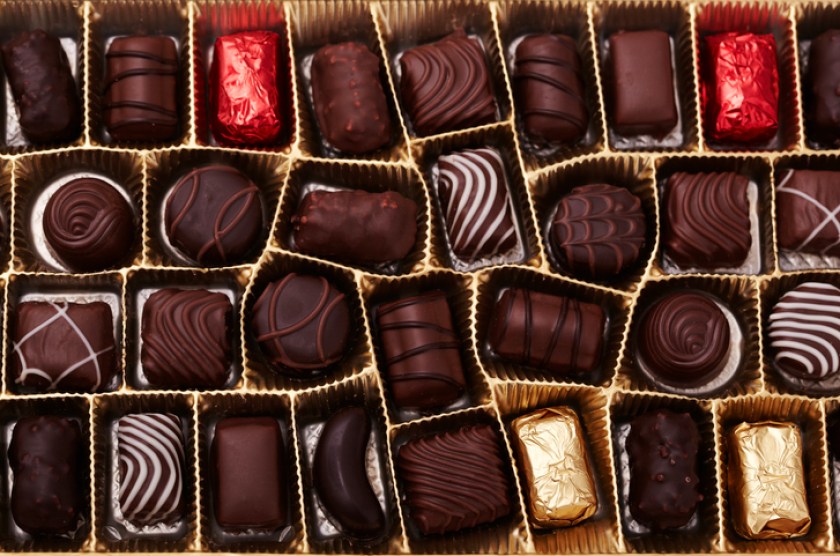
Getty Images/GMVozd
Milk chocolate, on the other hand, is right in the middle, with less caffeine content than dark chocolate, but more than white chocolate. To get exact, standard dark chocolate has 12 milligrams per ounce, milk chocolate has 9 for every 1.55 ounce, and white chocolate has zero. The caffeine level of chocolate can also be made more complex based on what else is in the product. For example, if the chocolate product is an energy bar, it might have added caffeine to provide extra energy.
When it comes to a mug of hot cocoa, this also has caffeine in it, although the exact amount depends on the kind of chocolate used to make it. Powdered, ready-to-drink hot chocolate typically has a low percentage of caffeine, less than 5 mg. However, if the hot chocolate is made from cocoa powder, it will be a better source of caffeine, since the powder comes from cocoa beans. A large mug of hot cocoa can have around 25 mg of caffeine, which is a decently large amount considering that we usually drink hot cocoa for a comfy, warming drink rather than for a boost of energy.
To get some perspective, a cup of green tea has 35-70 mg of caffeine, a cup of black tea can have 60-90 mg of caffeine, and a 12 ounce cup of coffee usually has between 90 and 120 mg. Although a mug of hot cocoa has less caffeine than tea or coffee, it can still provide a small pick-me-up, which might be why we find that chocolate often gives us extra energy.
The Energizing Effects of Chocolate
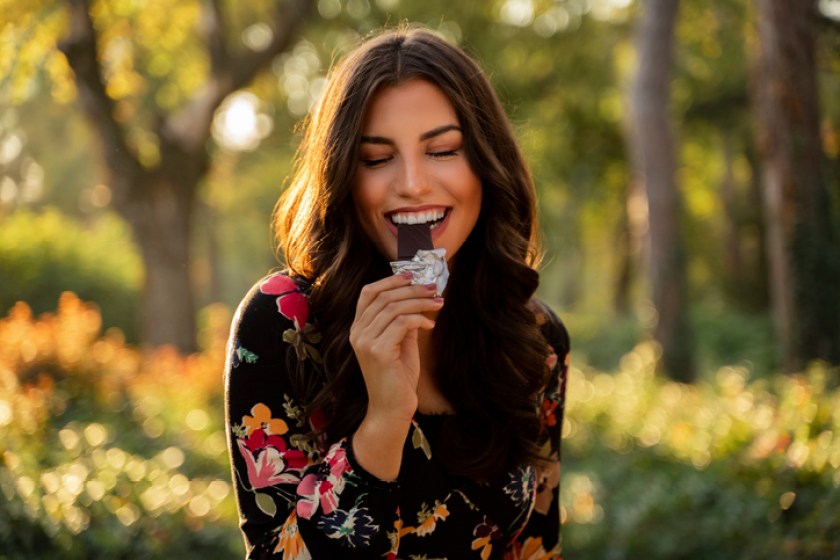
Getty Images/Phoenixns
Another reason that you might notice an uptick in your mood when eating chocolate is a substance called theobromine. This is also found in cocoa solids, and is what gives dark chocolate its bitter flavor. Like caffeine, theobromine naturally stimulates the central nervous system, giving you a feeling of alertness and improving your mood. Theobromine is also the element that provides many of the health benefits that chocolate has, like being anti-inflammatory, protecting against cancer, and treating respiratory conditions.
The combo of theobromine and caffeine in dark and milk chocolate is what provides us that boost of energy we sometimes feel after treating ourselves to chocolate cake or a few Hershey's bars. Plus, it's hard not to feel happy when you're eating something delicious!
READ NOW: The 10 Best Chocolate Dessert Recipes That Aren't Cake
